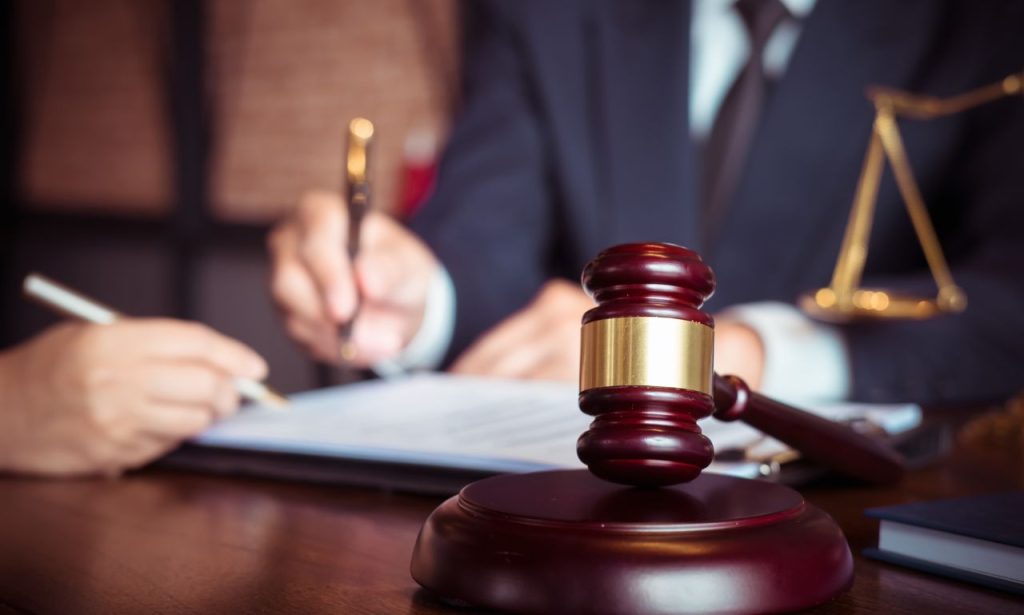Being accused of something you didn’t do is gut-wrenching. When those accusations involve molestation, the stakes skyrocket instantly. Your reputation, freedom, career, and relationships hang in the balance. I’ve seen how these allegations can derail lives in a heartbeat.
False allegations of molestation are more common than many realize. They emerge from misunderstandings, custody battles, coaching, or malicious intent. Whatever the source, your response in the hours and days after an accusation surfaces can dramatically impact the outcome.
I will walk you through the steps to face this nightmare scenario. These aren’t theoretical suggestions—they’re battle-tested approaches that have helped innocent people reclaim their lives.
Hire an Attorney to Help You Fight Back

The moment allegations surface, finding the right attorney becomes your absolute priority. Not just any lawyer will do—you need someone who specializes in defending against sex crime allegations. This area of law has unique challenges and requires specific expertise.
I’ve talked with people who thought they could explain their innocence without legal help. That’s a critical mistake. Everything you say can be twisted and used against you. A specialized attorney creates a buffer between you and the accusers, investigators, and prosecutors.
Your attorney will immediately begin protecting your rights, gathering evidence, interviewing witnesses, and building your defense strategy. They understand the local courts, prosecutors, and the common tactics in these cases. This knowledge is invaluable.
The financial cost of legal representation may seem steep, but the cost of inadequate representation is far higher. Some attorneys offer payment plans or sliding scale fees. Many will provide a free initial consultation to assess your case.
Challenge the Accuser’s Credibility
Challenging credibility doesn’t mean attacking the accuser personally. It means carefully examining inconsistencies in their account, potential motivations, and the context surrounding the allegations. Your attorney will handle this delicately and strategically.
False accusations often contain contradictions or physically impossible claims. These inconsistencies might not be evident initially, but experienced attorneys know how to identify them. They can then use these contradictions to question the reliability of the accusations.
The context matters tremendously. Are the allegations emerging during a heated custody battle? Has the accuser made similar claims before? Is there evidence of coaching or outside influence? These factors can significantly impact how allegations are perceived.
Remember that challenging credibility must be done within legal and ethical boundaries. Improper approaches can backfire severely. Trust your attorney to navigate this complex aspect of your defense.
Stay Calm
The emotional surge after being falsely accused can overwhelm your rational thinking. Yet maintaining composure is crucial for making wise decisions. Emotional outbursts or rash actions will only hurt your case.
Your emotions will fluctuate wildly—anger, shock, betrayal, despair. These feelings are natural, but they cannot drive your response. Take time to process privately, perhaps with a therapist who specializes in trauma. Practice stress management techniques that work for you.
Avoid public discussions about your case, especially on social media. The temptation to defend yourself publicly is strong but rarely helps and creates new problems. Focus instead on working with your legal team and maintaining your support network.
Staying calm also means avoiding self-destructive behaviors like excessive drinking or isolation. These temporary escapes can damage your credibility and ability to participate in your defense.
Gather Evidence
Evidence collection begins immediately. Every piece of information that proves your innocence or challenges the allegations must be preserved and organized. Time is critical—memories fade, digital records disappear, and physical evidence deteriorates.
Start by documenting your recollection of events related to the accusations. Write down detailed timelines, locations, and potential witnesses. Include any information about your relationship with the accuser and relevant interactions.
Digital evidence can be robust. Preserve text messages, emails, social media interactions, and phone records. Location data from your phone or vehicle might prove you weren’t where the accuser claims. Financial records can establish your whereabouts through transactions.
Identify potential witnesses who can verify your account or provide insight into the accuser’s motives or credibility. Your attorney will help determine which witnesses to approach and how to document their statements properly.
Develop a Strategy in Criminal Defense Cases
The approach depends on the specific allegations, available evidence, accuser characteristics, local laws, and the prosecutor’s history. Your attorney will develop this strategy based on these factors.
Some cases benefit from an aggressive approach that directly challenges the allegations. Others require a more measured response that emphasizes reasonable doubt. The right strategy might involve expert witnesses, character witnesses, or forensic evidence.
Understanding the prosecutor’s motivation is vital. Are they pursuing the case due to political pressure? Personal conviction? Career advancement? This insight helps shape your defense approach.
Your defense strategy isn’t static—it evolves as new information emerges. Regular communication with your attorney ensures the strategy adapts to developments in your case.
Do Not Contact the Accuser
Any communication—even well-intentioned—can be misconstrued as intimidation or admission of guilt. It creates risks with no potential benefits.
The no-contact rule extends to mutual friends, family members, or anyone who might relay messages. These indirect communications can be just as damaging. Your attorney should handle all necessary communications through proper legal channels.
If the accuser attempts to contact you, don’t respond. Document the contact attempt and inform your attorney immediately. These attempts may help your case by revealing inconsistent behavior or ulterior motives.
Maintaining this distance is particularly difficult when the accuser is a family member, former partner, or someone you previously trusted. Your attorney can help establish necessary legal boundaries while your case proceeds.
Support Your Mental Health
The stigma, uncertainty, and betrayal can trigger depression, anxiety, and post-traumatic stress. Getting proper mental health support isn’t optional—it’s essential for survival.
Find a therapist who understands the unique challenges of false accusations. They can provide coping strategies, emotional processing techniques, and a safe space to express feelings. Look for someone with experience in trauma and legal issues.
Your support network matters tremendously. Identify trusted friends and family members who believe in you. Their emotional support provides stability during this challenging time. Be selective—focus on quality support rather than quantity.
Self-care basics become crucial: maintain sleep patterns, eat properly, exercise regularly, and avoid excessive substance use. These fundamentals help preserve your mental clarity and physical health when needed.
Prepare for the Public Reaction
Once allegations become public, you may face judgment before evidence is examined. Preparing for this reality helps minimize its impact on your wellbeing and case.
Work with your attorney to develop a concise, dignified response for unavoidable public interactions. This might involve a brief statement asserting your innocence and commitment to the legal process. Avoid detailed explanations or attacks on the accuser.
Professional relationships may suffer. Employers, colleagues, and clients might distance themselves. Understand your employment rights and options—sometimes, taking temporary leave might be appropriate. Your attorney can advise on workplace implications.
Friends and acquaintances may take sides or withdraw completely. This painful social fallout requires resilience. Focus on those who stand by you while accepting that some relationships may not survive this challenge.
Understand the Legal Process
Though timelines vary, the legal journey after false allegations follows a predictable path. Understanding this process reduces anxiety and helps you prepare for each phase.
Initial investigation typically involves police interviews, evidence collection, and witness statements. Your attorney’s guidance during this phase is critical—what you say and how you cooperate matter enormously.
If charges are filed, you’ll face arraignment, preliminary hearings, and potentially a trial. Each stage has specific purposes and procedures. Your attorney will explain what to expect and how to present yourself.
The burden of proof rests with the prosecution, but false allegations often relate to credibility assessments. Understanding how credibility is established and challenged in court helps you participate effectively in your defense.
What is the Burden of Proof for False Accusations?

In criminal cases, prosecutors must prove guilt “beyond a reasonable doubt”—the highest standard in our legal system. This means the evidence must be so convincing that no reasonable person would question the defendant’s guilt.
For molestation allegations specifically, this burden requires substantial evidence beyond the accuser’s statement. Without corroborating evidence, cases often hinge on credibility. Your defense team will work to highlight gaps in evidence and alternative explanations.
Civil cases (like custody disputes or civil lawsuits) use a “preponderance of evidence” standard—essentially, what’s more likely than not. This lower threshold makes defending against false allegations in civil contexts different from criminal defense.
Understanding this burden helps you appreciate why specific defense strategies focus on creating reasonable doubt rather than proving absolute innocence. The system theoretically favors defendants, though practice sometimes differs from principle.
How Do You Prove Your Innocence When Falsely Accused?
Proving innocence often requires establishing alibis, highlighting inconsistencies, presenting character evidence, and sometimes utilizing expert testimony. The approach depends on the specific allegations and available evidence.
Alibis that place you elsewhere during the alleged incidents are powerful. Documentation like receipts, surveillance footage, electronic records, or credible witness statements can conclusively establish your location.
Inconsistencies in the accuser’s statement become critical evidence. These might include changing details, physically impossible claims, or statements contradicting objective evidence. Your attorney will methodically identify and document these issues.
Expert witnesses can explain why specific allegations lack credibility or scientific basis. This might include psychologists addressing false memory formation or medical experts challenging physical claims.
How Do You Win Against False Allegations?
Winning requires a comprehensive approach: strong legal representation, thorough evidence collection, strategic presentation, and personal resilience. There’s no single tactic—success demands excellence across multiple fronts.
Choose battles wisely. Fighting every minor point can undermine credibility on significant issues. Your attorney will help identify which aspects of the allegations are most vulnerable to challenge.
Preparation for testimony—both yours and your witnesses—is essential. How information is presented often matters as much as the information itself. Mock questioning sessions help develop clear, credible responses.
Document the investigation process itself. Improper interview techniques, leading questions, or failure to explore alternative explanations can undermine the accusations. Your attorney will scrutinize how evidence was gathered and interpreted.
Conclusion
False allegations of molestation create life-altering challenges. The steps you take immediately after accusations emerge can significantly impact the outcome. By securing specialized legal representation, carefully gathering evidence, maintaining your composure, and supporting your mental health, you create the strongest possible foundation for your defense.
Remember that many innocent people have successfully overcome false allegations. The process is grueling, but you can protect your rights and rebuild your life with the right approach and support. Stay focused on working with your legal team while caring for your well-being.
If you’re facing this situation, know that you’re not alone. Resources exist to help you navigate the legal and emotional aspects of false allegations. The road ahead is difficult, but proper guidance can lead you back to stability and justice.
ALSO READ: Why You Should Consult an Attorney Before Forming Your Business Entity
FAQs
Research suggests false allegations occur in 2-10% of reported cases, with higher rates in custody disputes. Accurate statistics remain challenging due to case complexity and reporting variations.
After being cleared, you may have grounds for defamation, malicious prosecution, or intentional infliction of emotional distress claims. Consult with a civil attorney about specific options.
Not automatically. Even after acquittal, arrest records may remain. Expungement options vary by state—discuss clearing your record after case resolution with your attorney.
Resolution timeframes vary widely—from months to years—depending on case complexity, court schedules, and evidence collection. Prepare for a lengthy process while hoping for a quicker resolution.
Discuss this carefully with your attorney first. Polygraphs have scientific limitations and variable admissibility. They might help in negotiations but rarely serve as courtroom evidence.




